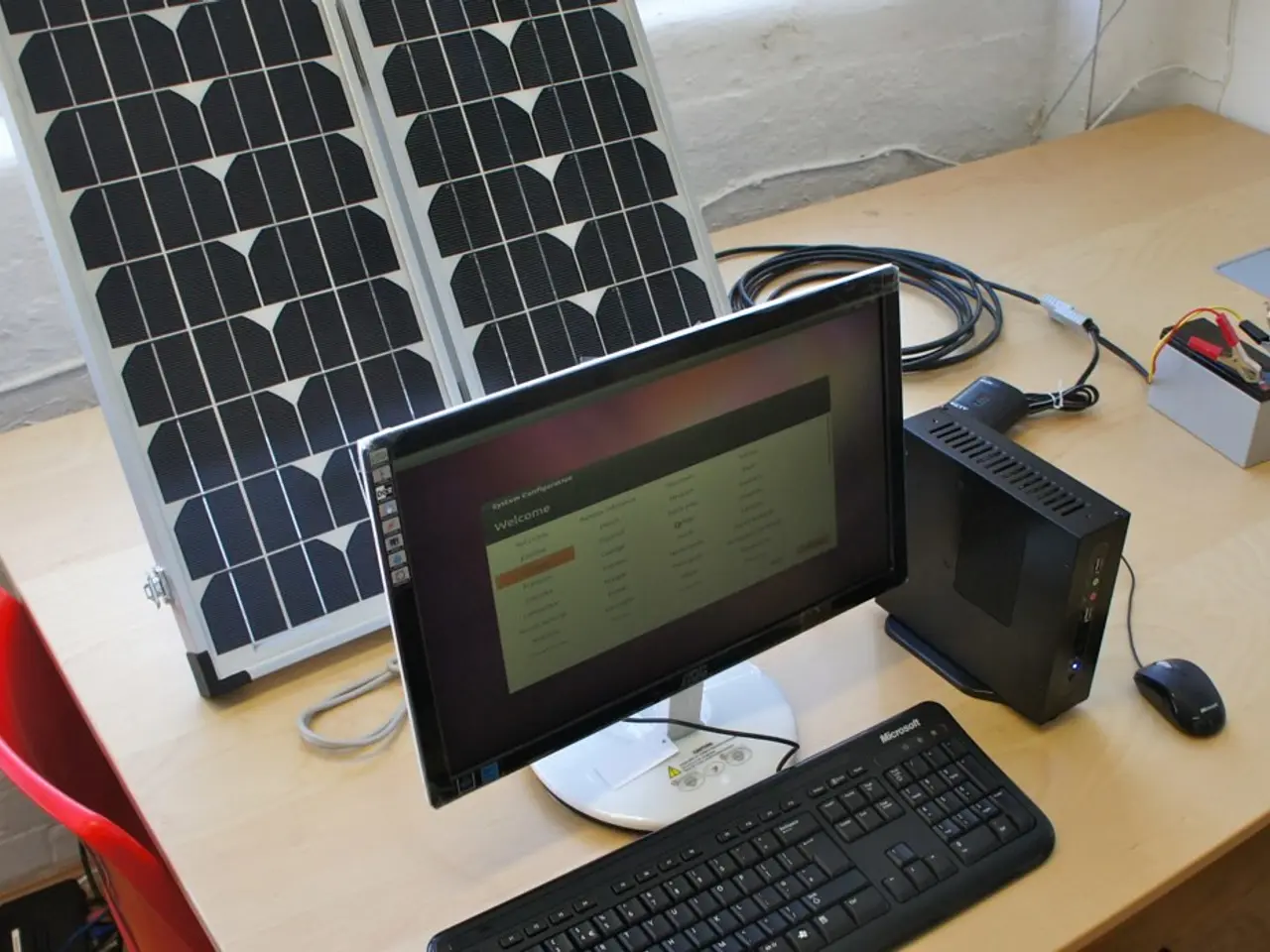Trump's AI strategy focuses on eliminating regulatory obstacles and rejects DEI initiatives
President Donald Trump unveiled a three-pillared AI Action Plan in a bid to accelerate the United States' position in the global race for artificial intelligence (AI). The plan, developed after seeking public input for a comprehensive AI policy in February, focuses on winning the AI race by accelerating innovation, building American AI infrastructure, and leading international diplomacy and security related to AI.
The key points of the plan include the rapid buildout of data centres and semiconductor fabrication plants, the removal of federal regulations deemed to hinder AI development and deployment, and a strong push for international AI export and diplomacy to compete with China. The plan also supports open-source and open-weight AI models, which democratize artificial intelligence.
A notable aspect of the Trump plan is its emphasis on deregulation, rapid deployment, industry-led innovation, and a cultural stance against ideological biases in AI models. In contrast to this, President Biden's revoked AI strategy prioritized AI safety, ethical guardrails, and addressing social risks associated with AI.
The Trump plan directs the National Institute of Standards and Technology to revise the AI management framework, eliminating references to diversity, equity, and inclusion, misinformation, and climate change. The policy of developers sharing safety test results and other critical information with the US government, which was present in Mr. Biden's executive order, is largely absent from President Trump's plan.
President Trump's AI Action Plan prohibits federal AI funds from going to states with restrictive AI regulations. This policy shift marks a move towards accelerating AI development with minimal restrictions, a stark contrast to Biden’s emphasis on caution and governance.
The plan's emphasis on international AI export and diplomacy could potentially give the US a competitive edge over China, which also aims to be a dominant AI player. However, consumer rights, labour, and environmental groups have outlined areas of concern within Mr. Trump's less restrictive stance on AI.
During President Trump's visit to the UAE in May, a similar data centre deal was announced. If more of these deals come to fruition, it could help the US gain influence as other countries seek to join the race to provide computational power for AI.
The White House received over 10,000 responses to requests for guidance on the AI plan, with tech companies, academics, and advocacy groups submitting ideas for the strategy. However, concerns have been raised about the tech industry having too much influence in crafting the AI plan, with several organizations, such as the Electronic Frontier Foundation, expressing their concerns.
The AI push seeks to streamline the construction permit process for data centres, which are critical to AI breakthroughs. The plan also emphasizes the exporting of American AI technology by partnering with industry to supply allies with AI hardware, models, software, and standards.
In conclusion, President Trump's AI Action Plan represents a significant shift towards accelerated AI development, deregulation, and international competition, particularly in contrast to the more cautious and governance-focused approach of President Biden's strategy. The success of this plan remains to be seen, but its implementation could potentially give the US a competitive edge in the global race for AI dominance.
- The Trump AI Action Plan, specifically focusing on international AI export and diplomacy, may give the United States an edge against China, another dominant AI player.
- The plan encourages the rapid buildout of data centers and semiconductor fabrication plants, moving away from federal regulations that might inhibit AI development and deployment.
- In contrast to President Biden's AI strategy, which prioritized AI safety, ethical guardrails, and addressing social risks, the Trump plan emphasizes deregulation, rapid deployment, industry-led innovation, and eliminating references to diversity, equity, and inclusion.
- The emphasis on AI export and diplomacy,as well as the loosening of restrictions, has sparked concerns from consumer rights, labour, and environmental groups, who outline these areas as potential points of concern within the less restrictive stance on AI.




